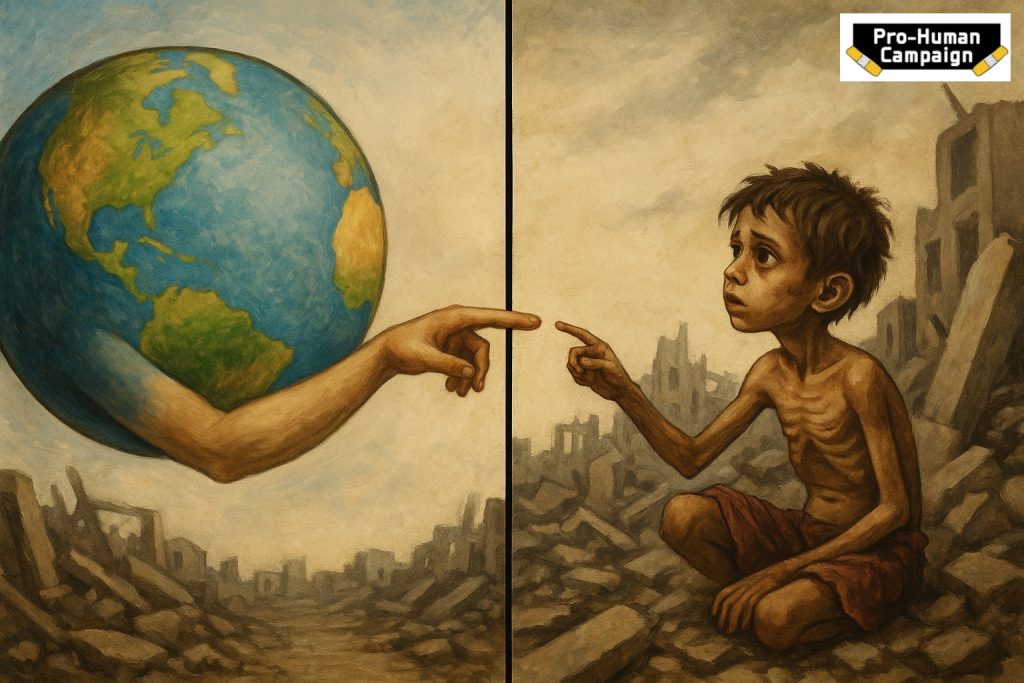How can international pressure on Israel be made effective
Even before the expected battle on Gaza city the images from Gaza strip are unbearable: entire neighborhoods reduced to rubble, families starving, children buried under debris. Many legal scholars already call Israel’s actions genocide; at the very least, they meet the definition of crimes against humanity. Around the world, Israel’s far-right government is seen to have crossed a moral red line. At last, the international pressure is mounting, likely to intensify further given Israel’s current threat to occupy the entire Gaza Strip and planning settlement in E1 area of the West Bank that would jeopardize a future Palestinian state.
For many on the left, this feels like the long-awaited remedy. After decades of empty declarations and futile diplomatic démarches, firm international pressure might at last end Palestinian oppression. But pressure is no magic wand — it can fail for years if those under it feel arbitrarily targeted and are willing to endure whatever it takes.
The research is sobering. Sanctions against human-rights abusers work only part of the time. What tips the balance is often what also makes them moral: seeing the conflict in full, not in caricature and distinguishing between the population at large and direct perpetrators. That means recognizing the suffering of Israelis as well as Palestinians.
If the people under pressure see it as unfair, irrational, or purely punitive, they will close ranks around even the worst leaders. But if they can see its logic — even if they don’t like it — they’re more likely to accept the need for change. That’s why international pressure can’t be a substitute for talking to Israelis; it must go hand-in-hand with a strategy to persuade at least part of the public, or its chances of success will sharply decline.
The form of pressure matters, too. Targeted sanctions — on political elites, their assets, and key sectors — work better than sweeping embargoes that punish ordinary civilians and spark national solidarity. The rhetoric matters just as much: make a sharp distinction between everyday Israelis, many still reeling from Hamas’s October 7 massacre, and the leaders responsible for abandoning hostages and unleashing devastation in Gaza.
Such framing not only strengthens the moral case; it also broadens the coalition willing to apply pressure, another factor strongly linked to success. By contrast, a simplistic narrative casting one side as pure victim and the other as pure perpetrator is likely to fail: it will deter states from joining, weaken internal opposition, and harden public resistance within Israel.
A narrative that recognizes Israel as the stronger, oppressive side — yet acknowledges that Israelis have also suffered grievously, face real security threats, and that Hamas is itself an agent of repression — has a far better chance of breaking through. It reflects the reality of the Middle East, treats Israelis more fairly, and is far more likely to end Palestinian oppression. Clinging to a zero-sum view of international pressure risks undermining its very effectiveness.
Finally, pressure can gain greater domestic and international legitimacy if it is paired with reasonable policy alternatives that the perpetrator government refuses to consider — making it appear rigid and extremist. This is why it is crucial to challenge the Netanyahu government with Gaza policies that acknowledge valid security concerns yet steer far from the current path toward atrocities and Jewish supremacism. Even if such proposals are doomed to fail, they reinforce the case that an international “stick” is inevitable.
First published on Times of Israel as an op-ed.
A letter campaign calling for effective pressure on Israel (Hebrew only)>>>

